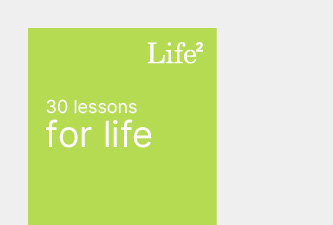Perhaps we’ve all had the feeling when we’ve seen an advert or a friend’s social media post showing a particular experience (e.g. having a picnic in the park) that it looks wonderful, and somehow seems to be a richer, more fulfilling and more pleasurable experience than the one we had when doing the same thing. The people look like they’re having more fun and seem more connected with each other than you were on your last picnic.
Why does it feel this way sometimes? And why is this a problem?
First, the pictures other people paint of their experiences can be extremely unreliable and unrealistic. This can be the case even in one-to-one situations, in which people want to make their lives appear interesting, but can be further exacerbated by social media, which can become a marketplace for bragging about our experiences, in which we carefully yet unconsciously share the experiences that communicate a particular image we want to convey of our lives - even if it’s not a realistic one. Advertising is another major source of information, messages and influence in our lives - and this also provides us with an unrealistic view of the world and other people’s lives.
Even if we weren’t seeing unrealistic and deliberately aspirational versions of other people’s experiences around us, we may still get the feeling that our own experiences and lives are missing something in comparison to those of other people that we see and hear about ‘out there’ in the world. This is partly because, when we see or hear reports of other people’s experiences, our imaginations can take flight and conjure up richer, more fantastical views of what the other people’s experiences must have been like. In other words, our minds can project our own needs and fantasies onto our perception of other people’s experiences to make them appear far more joyous and pleasurable than they actually were. In reality though, other people's’ lives are very much like yours.
With this in mind, it’s no wonder that our perceptions of other people’s experiences can sometimes seem more exciting than our own - even though they are probably not.
The problem is, constant comparison with other people’s lives and experiences can lead us into not paying enough attention to our own. This can lead to our own experiences feeling quite dull, and to us ignoring the true richness and pleasure of our own experiences and lives. So, not only are we placing too much attention on other people’s experiences that are often unrealistic in the first place, we’re also doing this at the expense of our appreciation of our own experiences. And let’s remember that our own experiences are the only ones we’ll ever have - so we might as well make the most of them!
And this doesn’t just apply to our experiences - it applies to the way we live and perceive our lives in general. For more details on this broader point, download the Life Squared booklet ‘How to achieve less’.
The solution
The solution to all of this is that we need to do two things:
- In the modern world we have more visibility of other people’s lives than ever before - even if some of these representations aren’t realistic. We need to resist the strong temptation to continually compare our own lives with those of other people, and we need to be aware of how unreliable our assessment of other people’s experiences can be (either because of the way they represent them or the things we tend to project on to our view of other people’s lives).
- We need to get back to being truly ‘present’ when we live our lives and have our own experiences - after all, these are the only experiences we are ever going to have. This could be seen as a type of ‘mindfulness’, but it doesn’t need any such categorisation. It simply requires us to be fully present for the living of our own lives, rather than spending our time comparing our own lives with those of other people.
In conclusion - we can only live and experience our own lives - so let’s start paying more attention to them.
© 2016 Life Squared. No part of this book may be reproduced in any form without the publisher’s permission. Please contact Life² if you wish to syndicate this information.




